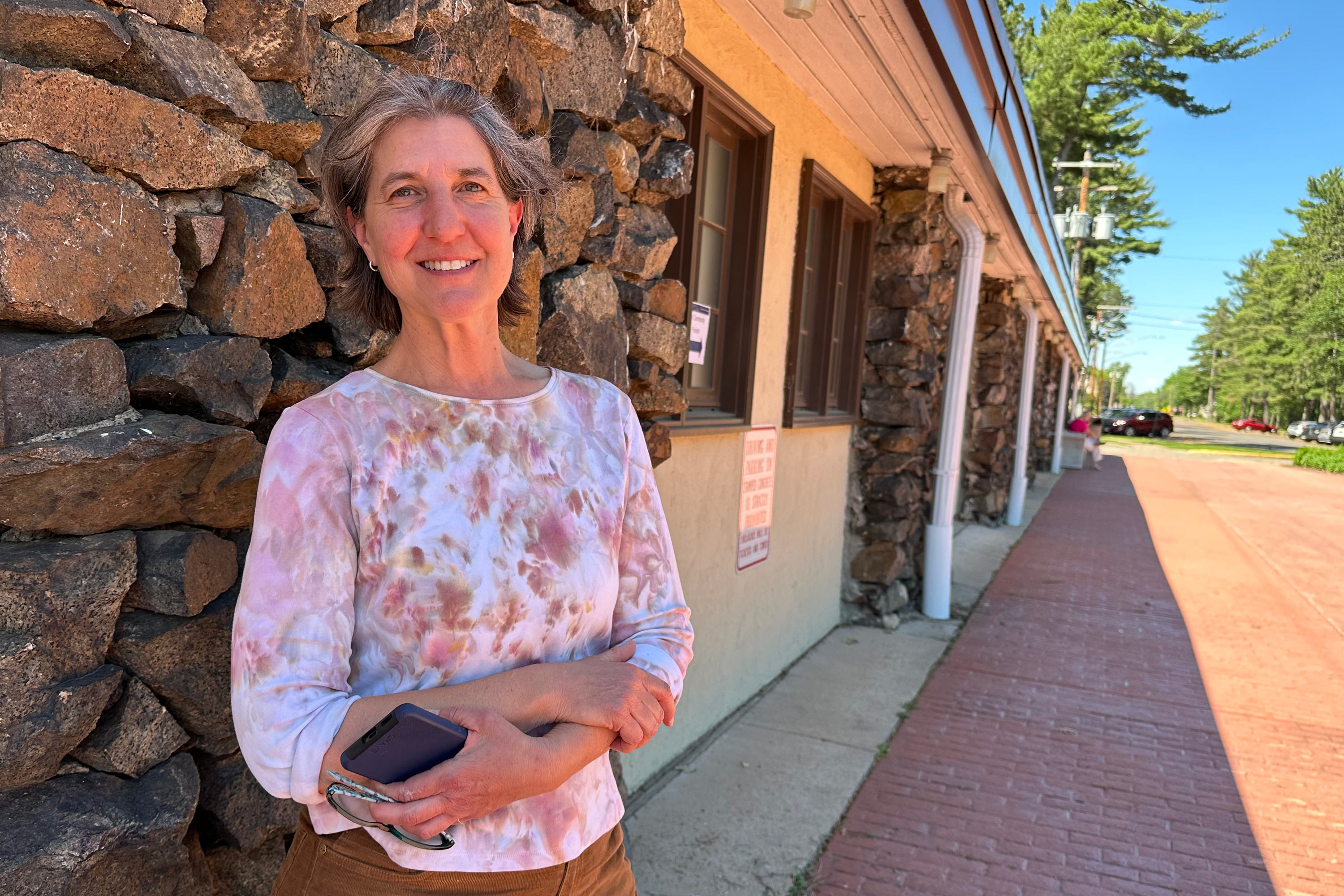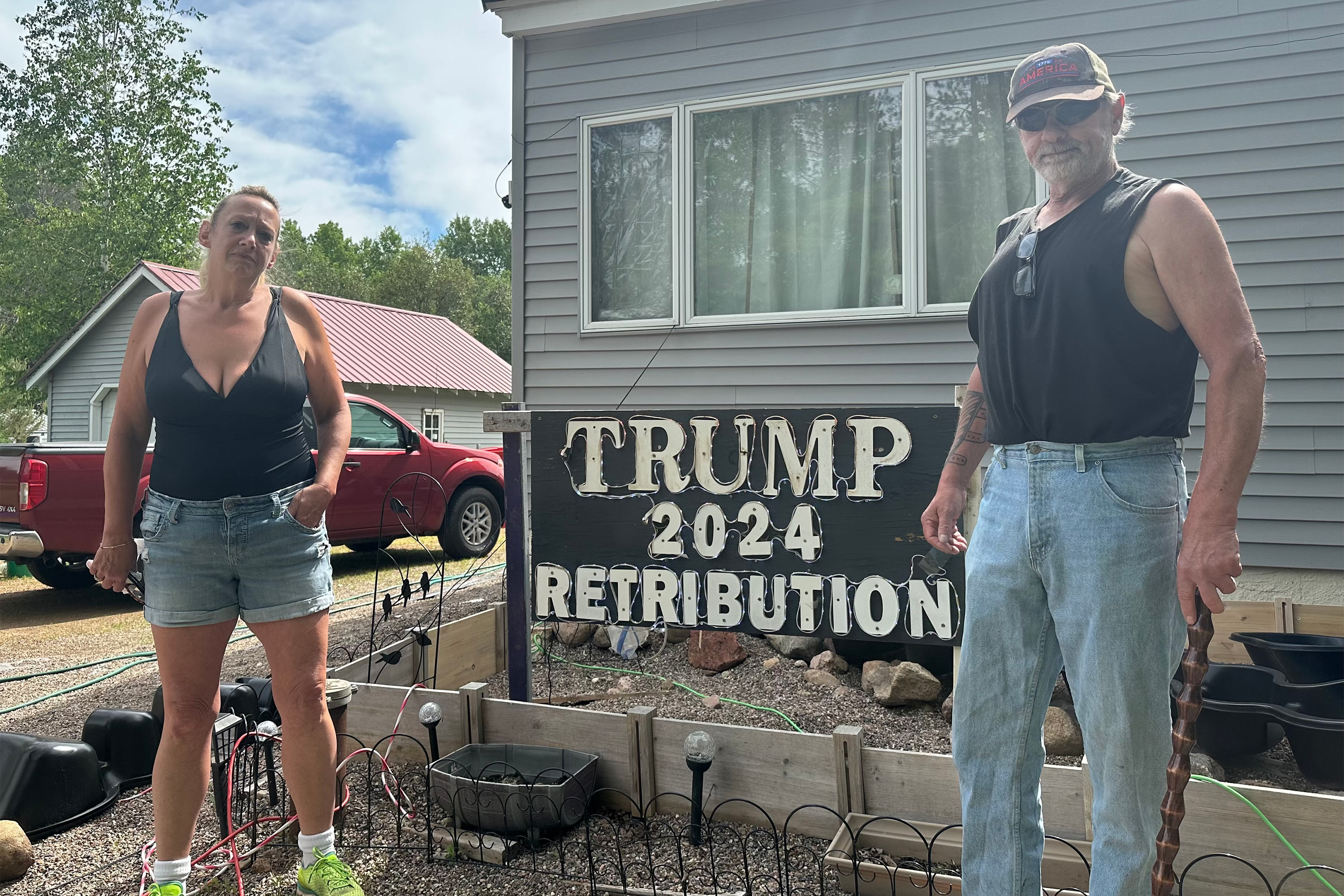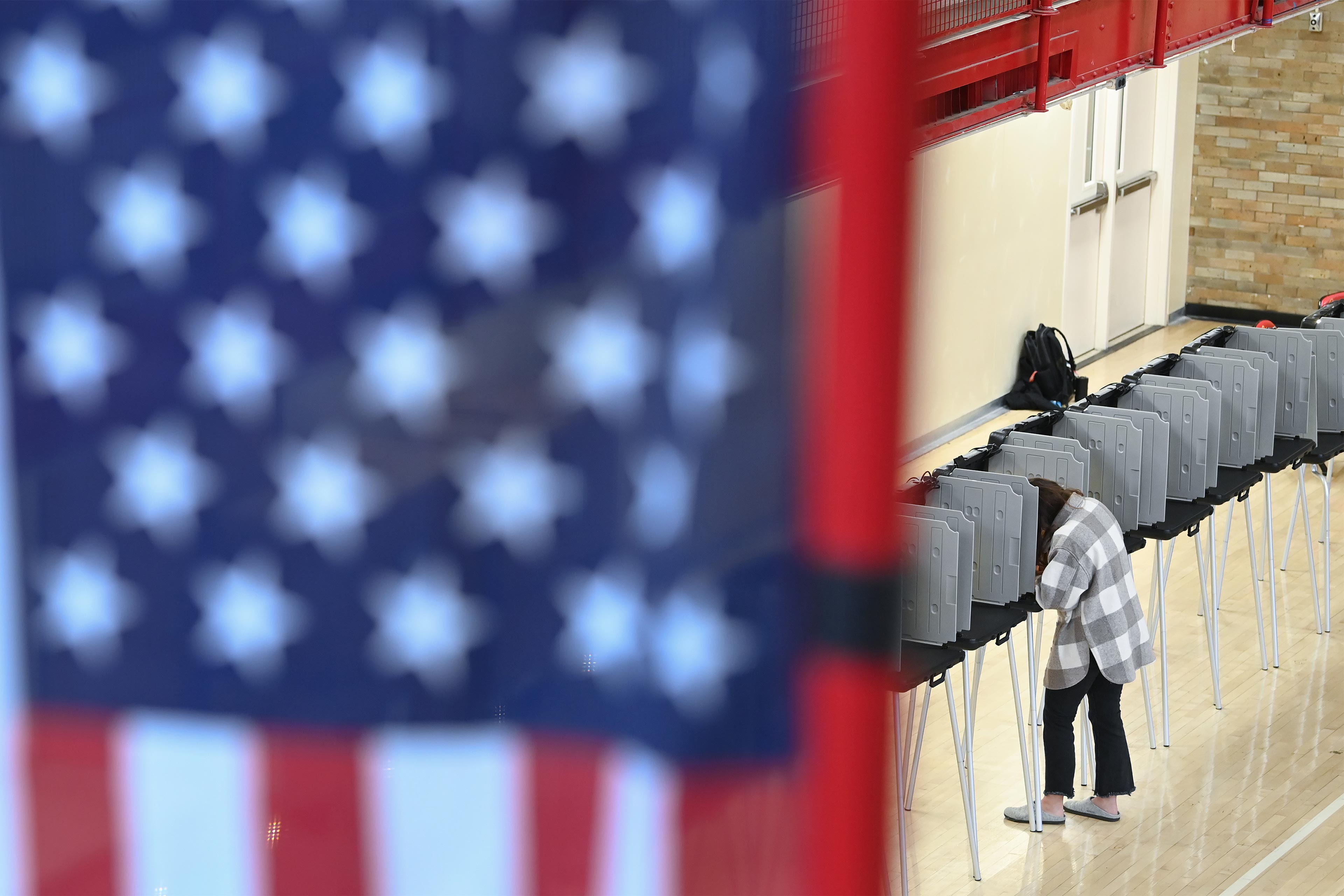BIRNAMWOOD, Wis. — The land of fried cheese curds and the Green Bay Packers is among a half-dozen battleground states that could determine the outcome of the expected November rematch between President Joe Biden and former President Donald Trump — a contest in which the cost and availability of health care are emerging as defining issues.
At church picnics and summertime polka festivals that draw voters of all political stripes, Wisconsinites said they’re struggling to pay for even the most basic health care, from common blood tests to insulin prescriptions. A proposal by Wisconsin’s Democratic governor to expand the state’s Medicaid program to thousands of low-income residents has become a partisan lightning rod in the affordability debate: Democrats want it; Republicans don’t.
In 2020, voters here gave Biden, a Democrat, a narrow win after favoring Trump, a Republican, in 2016. Recent polling indicates that the two rivals were neck and neck in this year’s race. They were scheduled to square off tonight in the first televised debate of the campaign.
Many Wisconsin voters still can’t figure out whom to vote for — or whether to vote at all.
“I know he’s trying to improve health care and inflation, but I’m not happy with Biden,” said Bob Prelipp, 79, a Republican who lives in Birnamwood, a village of about 700 people in rural central Wisconsin. He reluctantly voted for Biden in 2020, after voting for Trump in 2016.

Prelipp was serving beer at the Birnamwood Polka Days festival on a muggy June day. Pro-Trump hats peppered the crowd, and against the backdrop of cheerful polka tunes, peppy dancing, and the sweet smell of freshly cut hay, candidates for local and state office mingled with voters.
This rural part of the state is ruby red. Trump flags fly over the landscape and businesses proudly display pro-Trump paraphernalia. Biden supporters are more visible and vocal in the Wisconsin population centers of Madison, the capital, and Milwaukee.
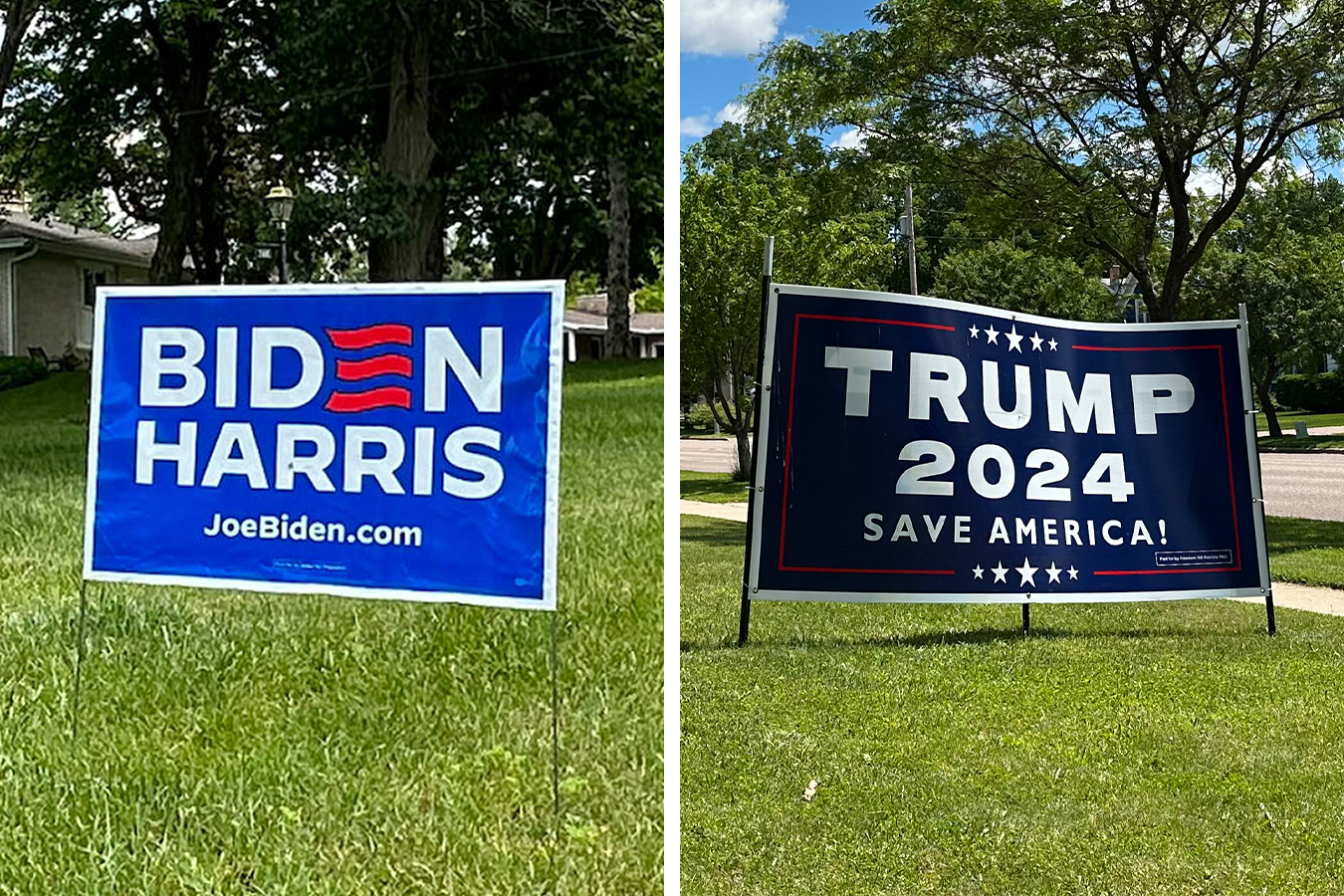
Biden “needs to get prices down. Everything is getting so unaffordable, even health care,” said Prelipp, a Vietnam War veteran who said his federal health care for veterans has improved markedly under Biden, including wait times for appointments. Yet he said he can’t stomach the idea of voting for him again, or for Trump, who has disparaged military veterans.
Prelipp said people are feeling nickel-and-dimed, not only at the grocery store and gas pump, but also at doctors’ offices and hospitals.
Greg Laabs, a musician in one of the polka bands at Birnamwood, displayed a pro-Trump sticker on his tuba. He said he likes his federal Medicare health coverage but worries that if Biden is reelected Democrats will provide publicly subsidized health care to immigrants lacking legal residency.
“There are thousands of people coming across the border,” said Laabs, 71. He noted that both Biden and Vice President Kamala Harris endorsed providing public health care to immigrants without legal residency as presidential candidates in 2019, a position that Harris’ home state of California has enthusiastically embraced. “We cannot support the whole world,” Laabs said.
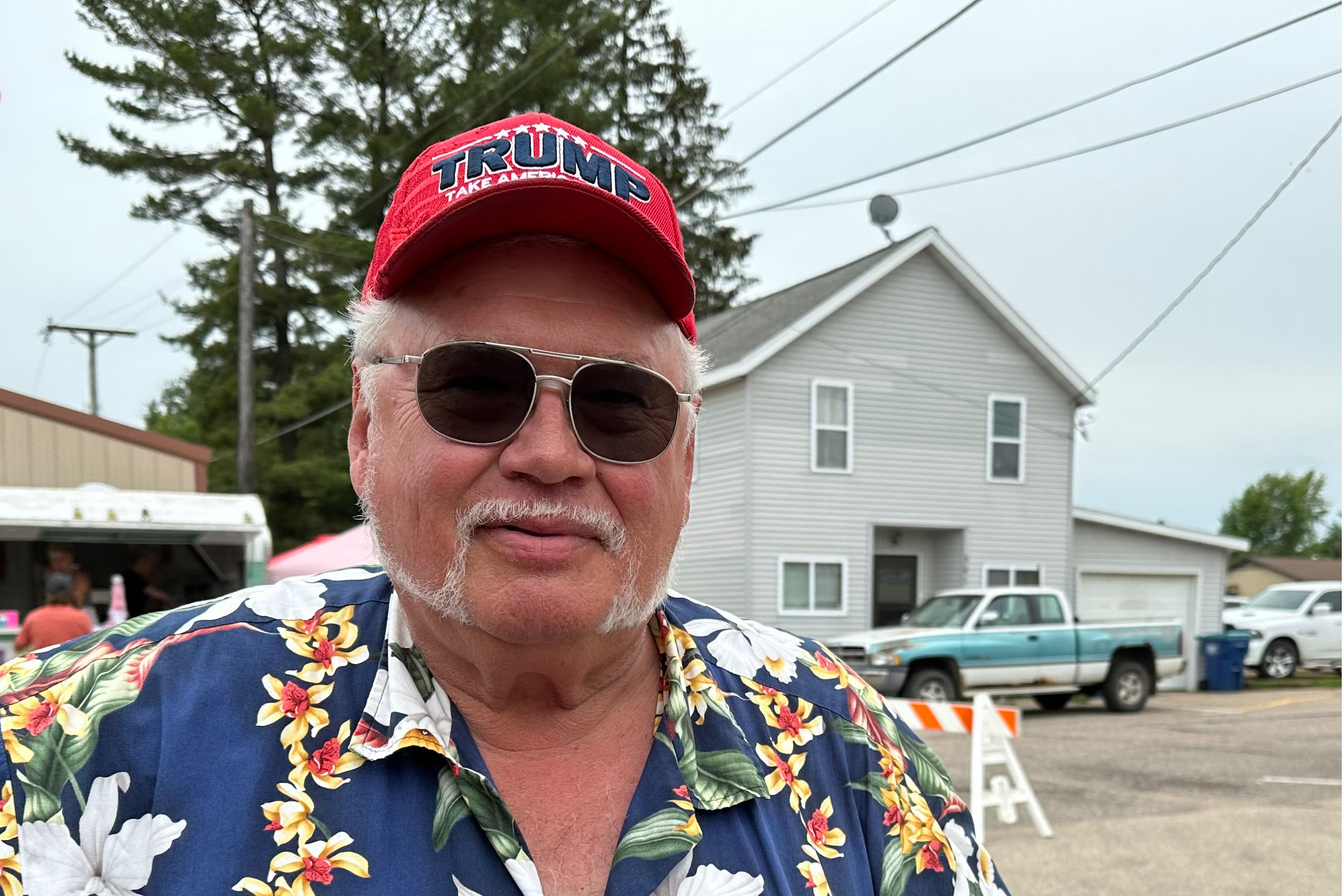
The two main political parties will pick presidential nominees at their national conventions, and Biden and Trump are widely expected to be their choices. Republicans will gather in Milwaukee in July. Democrats will convene in Chicago in August.
Biden is trying to make health care a key issue ahead of the Nov. 5 election, arguing that he has slashed the cost of some prescription medications, lowered health insurance premiums, and helped get more Americans covered under the Affordable Care Act, also known as Obamacare. He has also been a strong supporter of reproductive rights and access to abortion, particularly since the U.S. Supreme Court struck down Roe v. Wade two years ago.
“The choice is clear: President Biden will protect our health care,” claims one of Biden’s campaign commercials.
Trump has said he wants to repeal Obamacare, despite multiple failed Republican attempts to do so over several years. “The cost of Obamacare is out of control,” Trump wrote last year. “I’m seriously looking at alternatives.”
Even Democrats who back Biden say the president must make it easier and cheaper to get medical care.
“I signed up for one of the Obamacare plans and got my cholesterol and blood sugar tested and it was like $500,” said Mary Vils, 63, a Democrat who lives in Portage County in central Wisconsin.
She strongly supports Biden but said people are feeling squeezed. “We’re fortunate because we had some savings, but that’s a lot of money out-of-pocket.”
Wisconsin Gov. Tony Evers, a Democrat, said he understands “the frustration that people have.”
Evers has repeatedly attempted to expand Medicaid to low-income adults who don’t have children, which all but 10 states have done since the enactment of Obamacare in 2010. The state’s Republican-controlled legislature has repeatedly blocked his efforts, yet Evers is trying again. Expanding Medicaid would provide coverage to nearly 90,000 low-income people, according to his administration.
Evers, who supports Biden, has argued that expanding Medicaid would bring in $2 billion in federal funding that would help reimburse hospitals and insurers for uncompensated care, and ultimately “make health care more affordable.”

Many states that have expanded Medicaid have realized savings in health care spending while providing coverage to more people, according to the Center on Budget and Policy Priorities, a think tank based in Washington, D.C.
“We have to get the Medicaid expansion money,” Evers told KFF Health News. “That would solve a lot of problems.”
Biden’s campaign is opening field offices in Wisconsin, and he and federal health care officials make frequent visits to the state. They’re touting Biden’s record of increasing subsidies for Obamacare insurance plans, and promising to expand access to care, especially in rural communities.
“Millions more people have coverage today,” said Neera Tanden, a domestic policy adviser to Biden, at a mid-June town hall event in Rothschild, Wisconsin, to announce $11 million in new federal funding to recruit and train health care workers.
She said the gains in Obamacare coverage have helped achieve “the lowest rate of uninsurance at any time in American history. That’s not an accident.”
But attendees at the town hall event told Tanden and the secretary of Health and Human Services, Xavier Becerra, that they have lost access to care as hospitals and rural health clinics have closed.
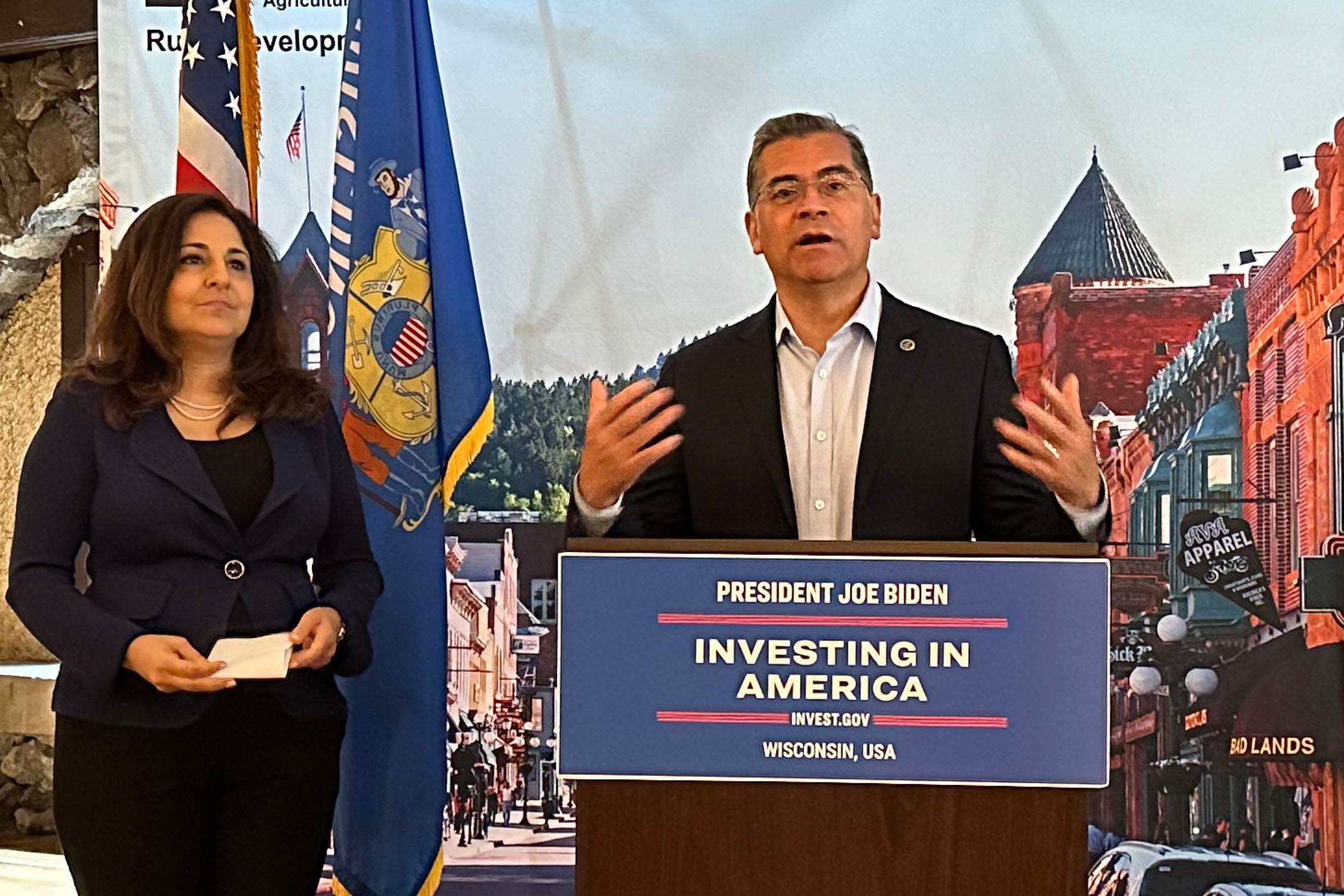
“We had a hospital that’s been serving our community for over 100 years close very suddenly,” said Michael Golat, an Altoona, Wisconsin, resident who described himself as an independent voter. “It’s really a crisis here.”
Becerra encouraged Wisconsin lawmakers to expand Medicaid. “Instantaneously, you would have hundreds of thousands of Americans in rural America, and including in rural Wisconsin, who now have access to care,” he said.
Cory Sillars, a Republican running for the Wisconsin State Assembly who campaigned at the Birnamwood polka festival, opposes Medicaid expansion and said the state should instead grant nurses the authority to practice medicine without doctor supervision, which he argued would help address gaps in rural care.
“If you’re always expanding government programs, you get people hooked on government and they don’t want to do it themselves. They expect it,” he said.
Sillars is running as a “pro-life” candidate with “traditional, Christian values,” an anti-abortion stance that some Democrats hope will backfire up and down the ballot.
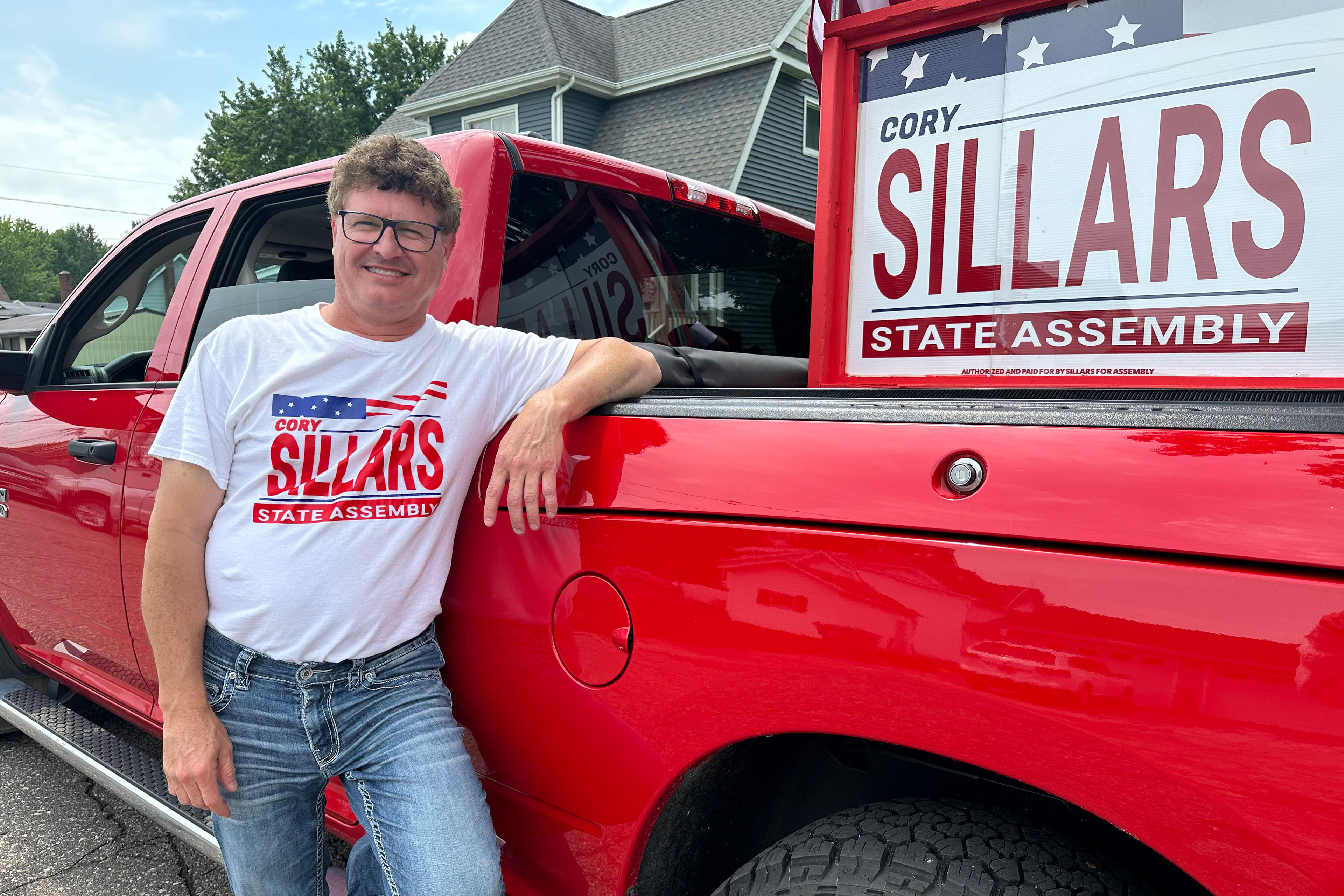
Kristin Lyerly, an obstetrician-gynecologist and a Democrat, has made access to abortion and contraception central to her campaign to fill the congressional seat vacated by Mike Gallagher, a Republican who resigned in April.
Lyerly lives outside Green Bay but practices in Minnesota after facing threats and harassment, largely from conservative extremists, she said. She was a plaintiff in the state’s legal bid to block Republicans from halting access to abortions. Abortions still are not available everywhere in Wisconsin, she said.
“It is incumbent upon me as a physician and a woman to stand up and to use my voice,” Lyerly said. “This is an issue that people in this district might not be shouting about, but they’re having conversations about it, and they’re going to vote on it.”
This article was produced by KFF Health News, which publishes California Healthline, an editorially independent service of the California Health Care Foundation.




